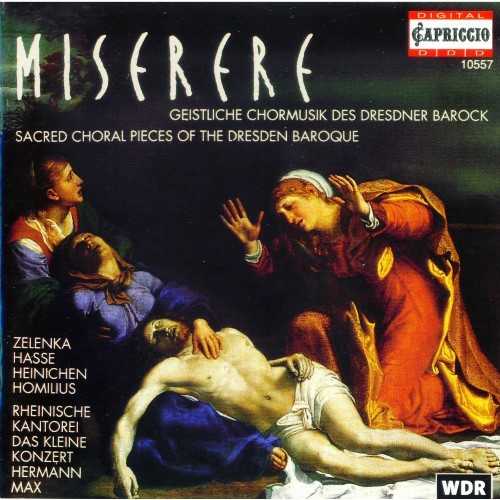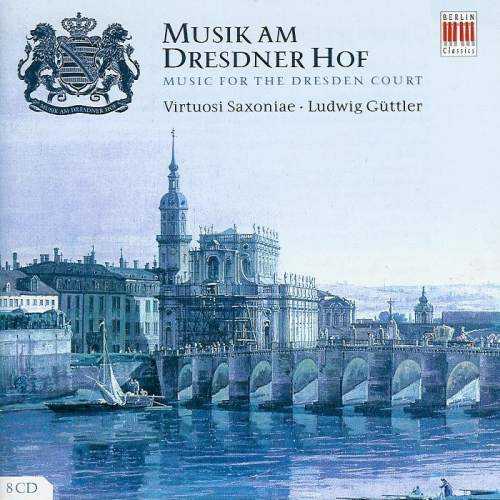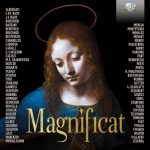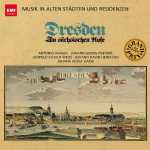
Composer: Jan Dismas Zelenka, Johann Adolf Hasse, Johann David Heinichen, Gottfried August Homilius
Audio CD
SPARS Code: DDD
Number of Discs: 1
Format: APE (image+cue)
Label: Capriccio
Size: 321 MB
Recovery: +3%
Scan: yes
01. Psalm 50 (Miserere c-moll) – Miserere I – Adagio
02. Miserere II – Andante ma non troppo
03. Gloria Patri I – Larghetto ma non troppo
04. Gloria Patri II – Andante ma non troppo
05. Sicut erat- Andante ma non troppo
06. Miserere III – Adagio
07. Miserere c-moll – Miserere mei Deus
08. Tibi soli peccavi
09. Ecce enim in iniquitatibus conceptus sum
10. Libera me
11. Quoniam si voluisses
12. Benigne fac
13. Gloria Patri
14. Sicut erat – Amen
15. Magnificat – Magnificat anima mea
16. Quia respexit
17. Quia fecit mihi magna
18. Fecit potentiam
19. Suscepit Israel
20. Gloria Patri – Sicut erat
21. Verwundrung, Mitleid, Furcht und Schrecken – Chor (Allegro assai)- Verwundrung, Mitleid
22. Recitativo accompagnato- Wie ist mir
23. Aria (Adagio ma non troppo)- Verheertes Land, in deinen Trummern
24. Recitativo- O sicherer Mensch, was schlafest du
25. Choral- Ei nun, Herre Jesu, schicke unsre Herzen zu
Superb works by three Dresden Court composers, and one odd-composer-out
A fine and cleverly conceived program, not only because it brings together simimar choral pieces – two Misereres and a Magnificat – but because those three composers, Heinichen, Zelenka and Hasse, had strong biographical ties. Heinichen was the court composer in Dresden in the third decade of the 18th Century, and Zelenka was his assistant and often substituted for the ailing composer. When Heinichen died in 1729, Zelenka hoped, with some legitimacy, to be offered the position – only to be trumped by Hasse, 20 years his younger. Which apparently didn’t prevent him from getting along well with the new court composer, sharing composing and conducting responsabilities with him, and learning from his Italianate and operatic style.
With all that, the order chosen by Capriccio seems somewhat arbitrary. It’s not alphabetical, not even in reverse order, and it’s not chronological, even if you consider not just the composer’s career in Dresden, but the dates of the specific compositions. The ideal ordering would have been Heinichen (The Magnificat is his last compositions, from 1729), Zelenka (1738) and then Hasse (this is the revised version, from the 1760s, of a work originally written for female voices only, in Venice, in 1730, with three numbers completely rewritten and one much abridged). Well, you can easily do that yourself.
Great Baroque music
Unfortunately the Amazon site for this CD is not informative enough. The CD includes Misereres by both Zelenka and Hasse as well as Heinichen’s Magnificat and a cantata by Homilius. In a word this is absolutely superb music brilliantly performed by the Rheinische Kantorei under the direction of Hermann Max, a truly inspired leader. If you are not familiar with the works of these composers, you are missing out. I strongly urge you to buy any vocal works by these composers. All of them write exciting and vibrant music.




Thank you.
Muchas gracias!
Perfect listening for Easter Sunday. Thank you Whatever.
Thank you watever, this looks very enticing.
Thank you very much!!!!!
Beautiful release. Thank you for this!